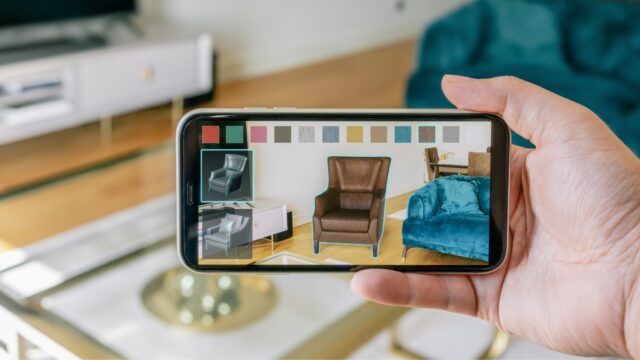We are on the brink of a revolution that pushes the boundaries of mobile technology and brings the power of artificial intelligence into the palm of our hands. Today, a special panel hosted by Samsung brought together leading figures in the tech industry to take a closer look at the Galaxy S25, which stands at the heart of this transformation, and the future of AI.
Jay Kim from Samsung, Sameer Samat from Google, and Christopher Patrick from Qualcomm shared their visions, challenges, and exciting predictions for the future of AI. Moderated by Bob O’Donnell, President and Founder of TECHnalysis, the panel also featured Dr. Chris Brauer from the University of London, who contributed groundbreaking research on consumer behavior. This gathering was more than just a product launch; it marked the beginning of a new era set to redefine how humanity interacts with technology.

Dr. Brauer’s compelling research revealed that mobile AI usage is still in its infancy. According to a study conducted with 5,000 consumers across five markets, only 27% use mobile AI regularly.

While this figure may be disappointing for those aware of the technology’s potential, it also highlights a vast opportunity. Dr. Brauer categorized the reasons behind this low adoption rate into three main issues: the lack of clear understanding of AI’s tangible benefits, a lack of confidence in its use, and concerns over personal data privacy. The panel emphasized the importance of developing applications that solve real-life problems for users and are easy to access.
Another critical finding from the research was that users primarily want to use AI for organization, productivity enhancement, and unlocking creative potential. This underscores the need to position AI assistants and applications as smart helpers that make life easier and save time.
At this point, the Galaxy S25 emerges as a milestone in the mobile AI experience. A product of Samsung’s strategic partnership with Google and Qualcomm, this device offers a unique synergy of on-device AI models, Google’s groundbreaking Gemini assistant, and Qualcomm’s powerful Snapdragon processor.
This trio enables complex and time-consuming tasks to be completed with a single voice command or a simple touch, making users’ lives more efficient and enjoyable. A user unfamiliar with French, for instance, can point their phone at a restaurant menu to understand the dishes, receive budget-friendly suggestions, and even place an order in French.
Similarly, a young person learning to do laundry can take a photo of their dirty clothes and the washing machine panel to get the most suitable washing settings. Basketball enthusiasts can add their favorite team’s entire home game schedule to their calendar with a single command. These and countless other examples demonstrate how the AI-powered features of the Galaxy S25 simplify everyday life and save users valuable time.
Behind the smart experience offered by the Galaxy S25 lies a unique collaboration and deep integration between Samsung, Google, and Qualcomm. The three companies co-designed hardware and software components to create a device that delivers high AI performance with low power consumption.
The most notable feature of this collaboration is the seamless integration of AI capabilities into the user interface. This allows users to express their needs simply and intuitively, without grappling with complex technologies. Open communication, mutual trust, and a shared vision among the development teams played a critical role in overcoming challenges and bringing groundbreaking innovations to life.
The panel also explored the future of XR (Extended Reality) technology and the transformative potential of AI in this field. Unlike smartphones, XR devices do not yet have an established interaction model, providing developers with a unique opportunity.
They can completely redesign the user experience and leverage the power of AI to create interaction methods previously unimaginable. AI agents in XR devices will be the key to delivering truly personalized and immersive experiences by understanding users’ needs, preferences, and contexts.
This means XR devices will evolve from being passive screens for content consumption into dynamic platforms that allow users to interact with their surroundings and the digital world, opening entirely new doors.
Of course, the widespread adoption of such powerful technology raises concerns about privacy and security. Panelists acknowledged these concerns and outlined the multi-layered security measures taken to protect user data.
Qualcomm ensures physical and logical isolation through strict security layers between every process and processor on the hardware side, maximizing data security. Meanwhile, Samsung strengthens device security with its Knox security platform, and Google strictly controls app permissions at the operating system level to safeguard user privacy. These measures are designed to allow users to enjoy the benefits of AI safely and securely.
In summary, this panel presented an exciting vision of the future of mobile technology and AI. Dr. Brauer expressed his enthusiasm for the dizzying pace of change while also addressing the challenges of keeping up with and guiding this rapid transformation.
Sameer Samat emphasized that AI represents a turning point for humanity and stressed the importance of using this technology responsibly. Jay Kim highlighted that the convergence of AI and XR technologies would usher in a new era of user experiences and redraw the boundaries of the mobile world.
The panel focused not only on technological advancements but also on the ethical and responsible use of these technologies, offering an inspiring vision for the future. This vision opens the door to a future that will redefine humanity’s relationship with technology and turn previously imagined possibilities into reality.














